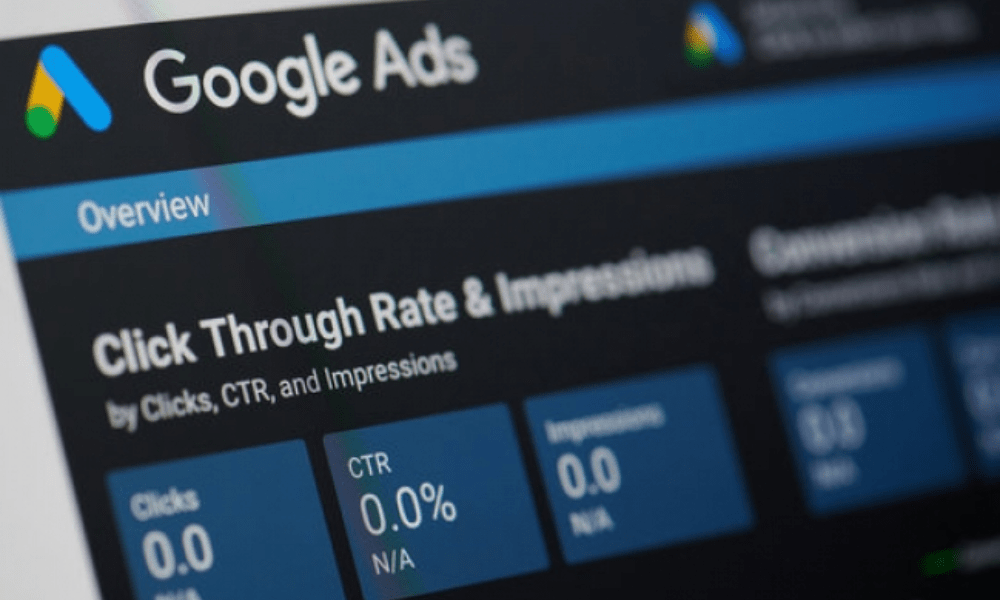Broad match modifier ( BMM keyword targeting option that allows you to show your ads for relevant search queries while maintaining some control over relevance . It's a compromise between broad match targeting, which offers wide reach but a low conversion rate, and exact match targeting, which offers high relevance but low traffic volume.
What is the purpose of the broad match modifier?

The BMM allows you to add a plus sign (+) before keywords that you want to be required to include in the user's search query . For example, if you use the keyword +red +shoes, your ads will be shown for queries like " cheap red shoes ", " where to buy red shoes " or " reviews of red shoes ", but not for queries like " blue shoes " or " lipstick ".
BMM offers several advantages for optimizing your Google Ads campaigns:
- It allows you to increase your traffic volume by reaching internet users who are searching for products or services similar to yours, but who use different or more specific terms.
- It allows you to improve your conversion rate by displaying your ads on more relevant queries than broad targeting, while avoiding queries too far removed from your offer.
- It allows you to reduce your cost per click by avoiding competition on the most popular keywords and benefiting from a better Quality Score thanks to the increased relevance of your ads.
- It saves you time by simplifying your keyword management, without having to create exhaustive lists of exact keywords or manually exclude irrelevant keywords.
How to use the broad match modifier in Google Ads?

To use BMM in Google Ads , you must follow these steps:
- Create a new campaign or edit an existing one.
- Choose the campaign type that matches your objective (search network, display, shopping, etc.).
- In the “ Keywords ” section, click the “ + Keywords ” button.
- Enter your keywords by adding a plus sign (+) before the words you want to include in the query. For example, +red +shoes.
- Validate your keywords and adjust your bid and budget according to your objectives.
What are the best practices for using the broad match modifier?

To get the most out of BMM, here are some tips to follow:
- Use BMM for keywords that have traffic and conversion potential
- Use BMM for keywords that have a wide variety of synonyms, spelling variants, or related terms, in order to cover all possible relevant queries.
- Use BMM for keywords that have low seasonality or are not very sensitive to trends, in order to benefit from stable and consistent traffic.
- Use BMM sparingly and don't apply it to all your keywords. Maintain a balance between broad targeting, BMM, and exact targeting, depending on your goals and budget.
- Use Business Matching (BMM) with caution and regularly monitor your keyword performance. Analyze search term reports to identify queries that generate traffic and conversions, and those that are irrelevant or ineffective. Add high-performing queries to your exact match list, and exclude irrelevant queries using negative keywords.
FAQ
What is the difference between broad match modifier and broad targeting?
match is the broadest and least restrictive keyword targeting option. It allows you to show your ads for all queries that are even remotely related to your keywords, including synonyms, spelling variations, related terms, and associated searches. Broad match offers wide coverage but a low conversion rate. Broad match modifier is a keyword targeting option that allows you to show your ads for relevant queries while maintaining some control over relevance. It allows you to add a plus sign (+) before keywords that you want to be required to include in the query. BMM offers a compromise between broad match and exact match.
What is the difference between broad match modifier and exact match targeting?
match is the most precise and restrictive keyword targeting option . It allows you to show your ads only for queries that exactly match your keywords or very close variations (plural, singular, accented, etc.). Exact match offers high relevance but low traffic volume. Broad match modifier is a keyword targeting option that allows you to show your ads for relevant queries while maintaining some control over relevance. It allows you to add a plus sign (+) before the keywords you want to include in the query. BMM offers a compromise between broad match and exact match.
How to choose between broad match modifier and exact match?

The choice between BMM and exact match depends on your goals and budget . If you want to maximize your traffic volume and reach a broad audience, you can use BMM for keywords with high traffic and conversion potential, but which are too generic or too competitive for exact match. If you want to maximize your conversion rate and reach a qualified audience, you can use exact match for keywords that are highly relevant and align with your offering.
How to choose between broad match modifier and broad targeting?
The choice between BMM and broad targeting also depends on your goals and budget . If you want broad coverage and to discover new traffic opportunities, you can use broad targeting for keywords with low competition or low search volume to capture unusual or unexpected queries. Broad targeting can also help you identify relevant keywords you might not have considered using by analyzing search term reports.
How to optimize the broad match modifier with negative keywords?
Negative keywords are keywords you want to exclude from your targeting to avoid showing your ads for irrelevant or ineffective search queries . Negative keywords are essential for optimizing your Business Marketing (BMM) because they allow you to filter out queries that don't match your offer or target audience. For example, if you're using the keyword "red shoes," you can exclude negative keywords like " blue ," " green ," " child ," " man ," etc.
To optimize BMM with negative keywords, you must follow these steps:
- Analyze search term reports to identify queries that generate traffic but no conversions, or that are off-topic.
- Add these queries to your negative keyword list , choosing the appropriate targeting level (campaign or ad group).
- Repeat this analysis regularly to refine your list of negative keywords and improve the performance of your campaigns.
What changes has Google announced regarding the broad match modifier?
In February 2021, Google announced that Black Match Marketing (BMM) would be merged with phrase match , a keyword targeting option that allows you to show ads for search queries that contain exactly or almost exactly your keywords, in the same order or with additional words. According to Google, this merger aims to simplify keyword targeting and offer advertisers more flexibility and relevance. Specifically, this means that:
- The plus sign (+) will no longer be necessary to use BMM . Simply use quotation marks (" ) to indicate the keywords you want to include in the query.
- Exact match targeting will take into account the meaning and intent of search queries , not just word order. For example, if you use the keyword “red shoes”, your ads will be shown for queries like “ red shoes ” or “red shoes”, but not for queries like “lipstick” or “blue shoes”.
- Exact match targeting will gradually replace BMM starting in July 2021. Advertisers will still be able to use the plus sign (+) until July 2022 , but it will be ignored by Google and treated as an exact match.
- Advertisers will need to adapt their keyword targeting strategies in response to these changes, analyzing the impact on their performance and adjusting their keyword lists and negative keywords.
Conclusion
To use BMM in Google Ads , you must add a plus sign (+) before the keywords you want to include in your search query. You should also follow some best practices to get the most out of BMM: use it for keywords with high potential, wide variety, and low seasonality; use it judiciously and cautiously; and analyze search term reports.
BMM is a keyword targeting option that can help you optimize your Google Ads campaigns, provided you know how to use it correctly. If you need help creating or managing your Google Ads campaigns, don't hesitate to contact a web content expert who can guide you through your digital strategy. You can also learn how to search on Google like a pro by following the tips in this guide .



